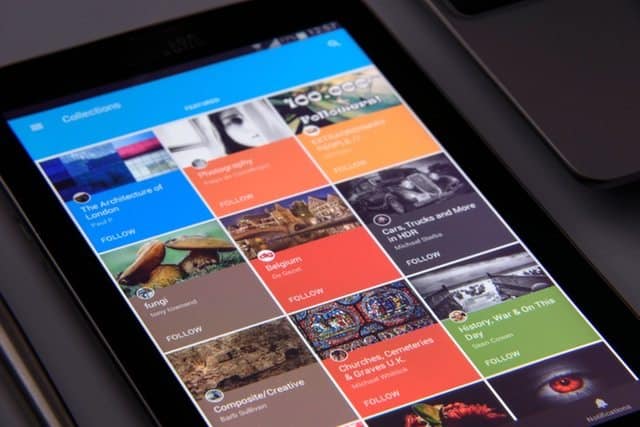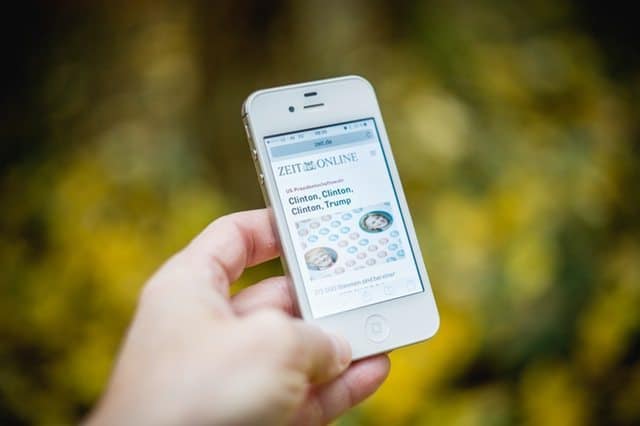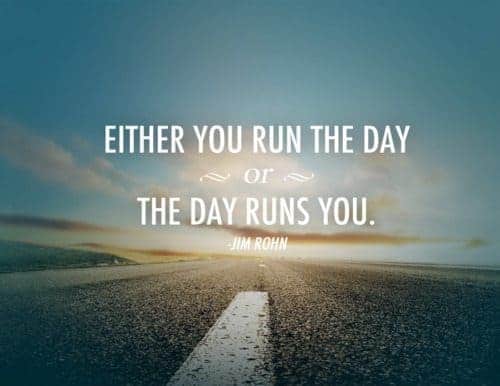How to Stay Informed With Current Events Without Going Crazy
Discover how to watch the news without losing your head.
Although we are constantly bombarded with endless negative headlines, there is still plenty to look forward to when you watch the news.
Calamities occur, countless lives are taken, terrorist attacks happen, the most outrageous rumors surround celebrities and countries, and world leaders quarrel.
The news is supposed to enlighten and inspire us, NOT constantly stress us out.
The tension brought about by instant access to news has become a “normal” part of our lives.
How are we supposed to stay sensible if we are constantly being bombarded with endless negative headlines?
Here’s how to cope and stay sane when you watch the news.
How To Watch The News Without Going Crazy
Give Yourself a Break

It is our responsibility as citizens to watch the news about what goes on around us.
But the frequency and way we do it are completely up to us.
Over-consumption of bad news is unhealthy.
However, no matter how bad it is, there’s always something positive to look forward to.
If you don’t feel like dealing with political news today, then don’t.
Cut yourself off when you start to feel overwhelmed.
Disconnect.
Meditate.
Heck, sleep it off even.
The world goes on; you can always watch the news later.
University of Texas–San Antonio Professor and a leading researcher on the connection between media consumption and stress, Mary McNaughton-Cassill, shares:
“How can we fight back against the unnecessary coarsening of our outlook that may be occurring every time we glance at one of our gadgets? … Just turn it off. That is, take a break from the news. Switch off CNN and shut down TweetDeck for awhile and don’t sleep next to your phone.”
In short, the stress isn’t worth it.
Be Selective About What You Read, Especially on Social Media

Checking Twitter or Instagram every half hour can become addicting, especially when updates show up by the minute.
Facebook has a “see first” feature, where you can customize what you see on your feed first thing.
Control yourself.
Who’s to say what we read or see hasn’t been tweaked or altered halfway through the circulation and dissemination process?
With all the fake news surrounding us, we can sometimes no longer tell what is real and what isn’t – especially if it has gone through countless reposts, retweets, and shares on social media.
It’s easy to fall victim to trending and viral topics when we watch the news.
You’re better off ignoring headlines you know are fake than retorting impulsively.
All you’re doing is giving these unreliable resources more exposure.
Don’t be a source of “wrong” information for gullible readers.
Not everyone will be as discerning and clear-sighted as you.
In a recent article from NYMAG’s Science of Us section, writer Jesse Singal suggests:
“One way to counteract such maladaptive clicking is to really focus on one or two issues that are most important to you, whether the environment or education or whatever else, and focus specifically on learning about and following those issues, rather than letting wave after wave of generally bad news wash over you and eventually carry you to a dark place.”
You don’t have to react to EVERY opinion that triggers you.
Avoid going cursor-crazy or turning into “click-zombies”.
If you must watch the news online, approach social media with caution and with clear intentions.
Mix Up Your Sources

Aside from gossip, hearsay, and eavesdropped conversations, people aren’t the only source of “information”.
Choose radio commentators and DJs who hold similar beliefs as yours and quit listening to stations that make your blood boil.
If you feel more aggravated than enlightened, there’s always the option of changing the channel.
Switch over to channels that are calm-inducing and high on scholarly information, like the Discovery Channel or National Geographic, etc.
They are still a source of information and are good platforms to watch the news, after all.
“Good News or Bad News First?”
Some news sites veer more towards serious news, while others prioritize happy happenings.
It’s up to you whether you want to read the bad news first and then treat yourself with the positive after.
Make time to remind yourself that there is still some good left in humanity.
Our world is not as “hopeless” as we think it is.
Bookmark pages that make you smile, entertain and inspire you.
Hop on Boredpanda, Thought Catalog, Buzzfeed, Everyday Power Blog, and other feel-good sites.
Become a positive source of new news.
There are many things to be thankful for rather than prolonging your misery and moping around.
Mitigate your desolation with gratitude and balance.
Act on Your Concerns
Rather than picking fights and initiating never-ending open-ended debates when you watch the news, TAKE ACTION.
- Read and respond to news that gives back.
- Donate to institutions that deserve more attention.
- Stand up for what you believe in.
- Join peaceful rallies
Lend a hand to causes you support.
For example: if you’re an advocate of protecting women and children against violence of any kind, volunteer.
Worried about the environment?
Start with your own home and neighborhood.
Let yourself sympathize with the latest headlines, be sad or shocked; we all need moments to purge our emotions.
But unless you yearn to be omniscient, you don’t have to know EVERYTHING going on in the world – let alone all the details about your nation’s happenings.
New islands and planets have been spotted, one out of thousands of newborns will be the next Einstein, celebrities will start to use the limelight for greater purposes, and nations will sign peace treaties.
Rather than feeling betrayed, losing sleep, and being angry, clear your head and wish for nothing but the best for humanity.
There’s still plenty to look forward to when you watch the news.
Our world isn’t as bad as the headlines make it seem.












Matt Mortensen
February 8, 2019 at 1:27 PM
I honestly don’t think it’s very important to keep up on current events. I run my own business and very rarely read anything about current events. They don’t affect my day-to-day life. It’s not worth filling my mind with negativity every day just to be “informed”. Great article! Thank you for sharing!